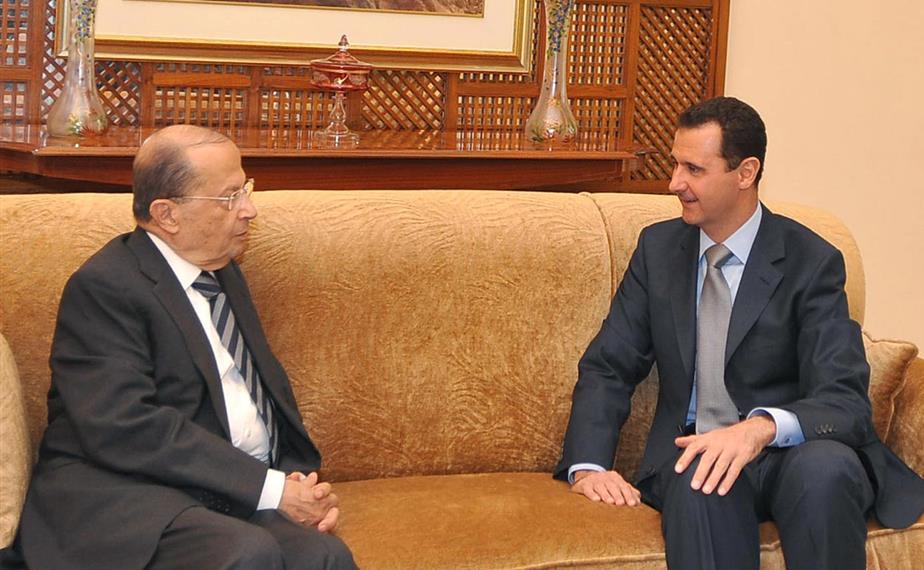A dangerous new president in Lebanon
By Jason M. Brodsky/American Thinker/November 2, 2016
The ascendancy of Michel Aoun, a former Christian general who once served a disputed term as prime minister of Lebanon in the 1980s, to the Lebanese presidency marks a milestone in the country’s long national electoral nightmare. There have been over 40 failed attempts alone at selecting a successor to the previous president, Michel Suleiman, since he stepped down in May 2014.
While Beirut may not be in the global headlines every day, regional trends indicate a potentially dangerous turn of events in Lebanon for three reasons: the new president’s alliance with Hezb’allah, Lebanon’s shared border with Israel, and the mainstreaming of Iran’s political power in the neighborhood.
Aoun has been a longtime ally of Hezb’allah – a sanctioned, terrorist organization – for years. Back in 2012, when asked about Israel, he told Al Manar, a Hezb’allah media mouthpiece, “To Sayed Nasrallah, I say we are in the same path until securing victory in the end.” In fact, Hezb’allah catapulted Aoun into the presidential palace. When Sunni leader and former prime minister Saad Hariri proposed another Christian leader and Hezb’allah ally for the position, Hezb’allah chief Hassan Nasrallah doubled down on Aoun, dubbing him “the obligatory path” to the presidency.
Despite the fact that Lebanon’s president has traditionally been branded a figurehead alongside the other centers of power – the prime minister who is by law required to be a Sunni and the speaker of the parliament who must be Shiite – the office provides a powerful platform in maintaining the country’s fragile political balance. In 2013, then President Michel Suleiman called on Hezb’allah to pull out of Syria because its actions were wreaking havoc in Lebanon, warning that a new Party of God-backed offensive to recapture Aleppo would lead to more tension at home. Fast-forward to today, given that Aoun made a vow on Monday to continue to support Syrian president Bashar Al-Assad – whom Hezb’allah is propping up – his election empowers the organization at a critical time, with Assad and his Iran-backed clients yet again trying to reclaim Aleppo.
Lebanon’s shared border with Israel also makes Michel Aoun’s new role all the more threatening. In his first public remarks upon assuming the post, Aounpledged to “release what is left of our lands from the Israeli occupation.” The tenor of his comments stands in contrast to the tone once used by his predecessor, Michel Suleiman, who, in 2012, during talk of a pre-emptive Israeli military strike on Iran’s nuclear program, stated in reference to Hezb’allah, “Should Israel strike Iran, it will not be attacked with missiles from Lebanon[.] … No one has the right to act without the Lebanese government’s authorization.” Given his record, it may be unlikely that Aoun, who owes a great debt of gratitude to Hezb’allah for his political fortunes, would be ready to effectively buck his political patron when violence is rapidly spilling across national borders.
Aoun’s appointment also comes on the heels of Hezb’allah targeting Israeli forces at the Lebanese border in January, bombing an Israeli military convoy near Shebaa Farms; an attempt in July of a Hezb’allah cell to plant bombs in the Haifa area; reports in September that a large contingent of Hezb’allah fighters have been preparing to move into southern Syria – particularly at the Quneitra passage – bordering Israel; and Jerusalem’s alleged assassination of multiple Hezb’allah operatives – for example, the targeting of Samir Kantar in an airstrike in Damascus last December – as the mayhem in Syria has enflamed this old rivalry.
Lebanon represents the linchpin in the Iranian regime’s designs to terrorize Israel. And Aoun’s dependency on Hezb’allah in this regard should be deeply concerning to the international community.
Lastly, Aoun as president represents the effective mainstreaming of Iran as a political kingmaker. Not only will Aoun carry the Hezb’allah imprimatur, but Nabih Berri, the Shiite speaker of Lebanon’s parliament, received the political party’s endorsement to continue in his current position. Despite Berri’s initial opposition to Aoun and his own tensions with Hezb’allah in the past, these developments demonstrate the power that Iran – vis-à-vis its proxy Hezb’allah – wields in the internal political dynamics of yet another country in the Middle East. With Saudi Arabia dramatically pulling out from Lebanon in April after cutting $3 billion in military aid and $1 billion in assistance to Lebanese security forces, the country has become yet another destination in an Iranian sphere of influence, comprising Baghdad, Damascus, Sanaa, and now Beirut.
Only time will tell if the violence enveloping Iraq, Syria, and Yemen will soon follow in Lebanon’s Mediterranean enclave. But Beirut matters – politically and geographically – and the country’s new power lineup is bound only to add to the regional powder keg.
**Jason M. Brodsky is the policy director of United Against Nuclear Iran. http://www.americanthinker.com/blog/2016/11/a_dangerous_new_president_in_lebanon.html




















